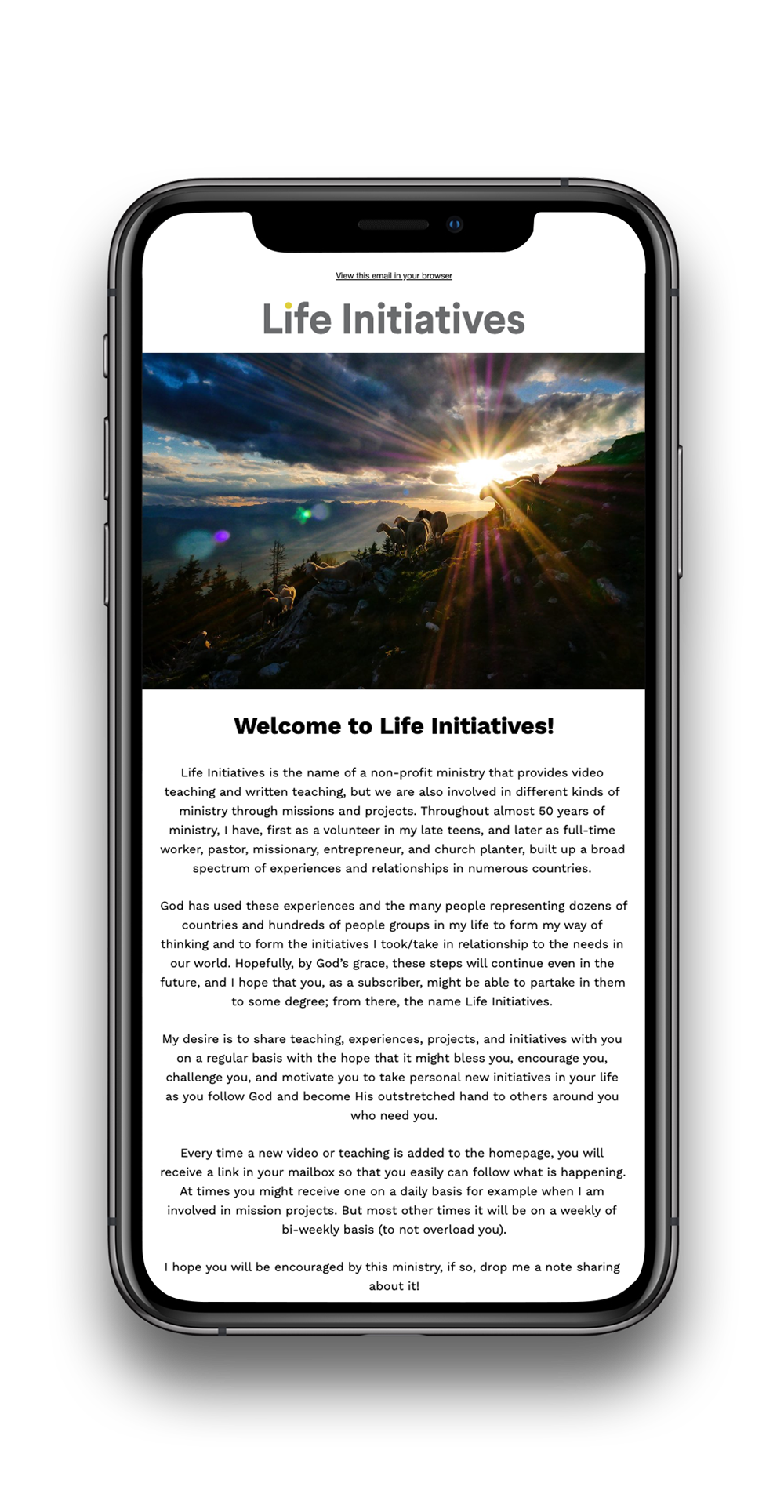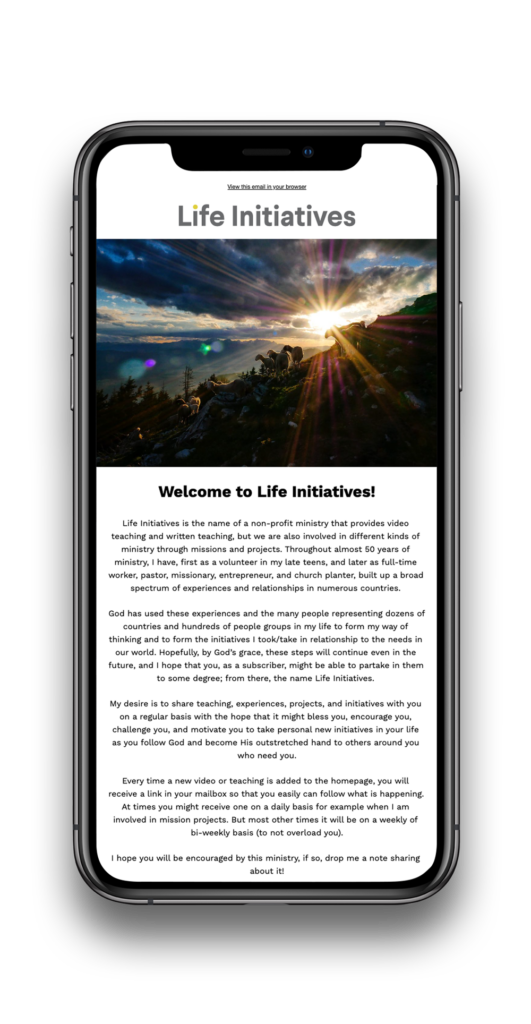Today I would like to introduce the first of two different occasions where I will go through the book of Jonah. I realize that the book of Jonah might have a rumor around it that it is not a trustworthy account because of the “fish-issue”. Many people are trying to liken the story to a Robinson Crusoe kind of story, or others to a fairytale. However, we have to realize that the book has a tremendous message and is an account of importance when considering God’s way of dealing with humankind.
Personally, I believe too much emphasis has been placed upon the “fish”. The fish is not to play a main part in this story. It is to be compared to a prop in a theatre play.
Let us look at some background:
It is important to see the account of the Jonah in the light of the sovereign God who is almighty to do whatever He wants to do. The problem is that we have tried to put God and His dealings in a box, and we draw the conclusion that everything that cannot be explained by our tremendous, unlimited wisdom and knowledge, cannot be true!
When reading Jonah we find:
Conclusion: There is a miraculous dimension to the Jonah story. Miracles mentioned here like when a storm was initiated, or a fish was prepared were in essence not greater than bringing someone back to life or multiplying food for 5000 people. A miracle is a miracle, there is no greater or a smaller miracle; that which by the laws of nature cannot be done requires supernatural intervention!

Vs 1 “The word of the Lord came to Jonah”. This is a common Biblical way of saying that God communicated his message to the prophet. How? We do not know, it might have been through dreams, visions, and impressions in his mind.
Vs 2 The message to go to Nineveh was a hard task. No prophet before had been send to the streets of another nation to preach judgment against it. Nineveh was quite a distance away: 1200 km by land. It was a very large city as well. Here an individual was to preach judgment!
As for a Jew going there, there were many barriers:
Vs 3 Jonah ran away from the Lord and headed toward Tarshish (Tartessus), a town in Spain. Nineveh was on the Eastern edge of the world they knew about, Tarshish was on the Western edge. Why run away? Why not stay in the comfort of his home in Palestine? You can disobey God and still stay at home, can’t you?
Tarshish was the last place in the world where one could expect a revelation form God. The people there did not know God. Being disobedient to God is very uncomfortable and is even more difficult when you meet God’s people. Jonah did not want to be reminded of God. That’s true even today. People who are disobedient often avoid close contact with other Christians who can be a threat. They miss church, they don’t want to get involved in cell groups; they give many reasons, but in essence they try to avoid the discomfort of being with Christians.
Vs 4 While running away from God’s peaceful presence which one gets when following Him, Jonah was now faced with God’s powerful presence!
Vs 5 All the sailors were afraid and were praying to their gods and they even threw out their cargo to lighten the ship! We find here that Jonah is under deck and is in a deep sleep! While the non-believers desperately seek for a solution and want to do anything possible to save all… Jonah is fast asleep! They look for a solution in the wrong place, but the one who knows the solution is asleep! What can this show to us? While the world is a rat race desperately looking for an answer to life’s questions and issues… The church is in its slumber of disobedience!
Vs 6 “How can you sleep? Get up and call on your god!” This can be very humiliating; Jonah is not being persecuted for his failure. Not ridiculed for his believes. But he is being corrected by a non-believer for being at the wrong place, at the wrong time, doing the wrong thing!
Vs 7-15 The sailors cast lots and it showed that Jonah was the responsible person. They questioned him. From what people are you? Jonah answered (vs. 9) “Yahweh, and the God of heaven”. Not just a local deity. But the God of Heaven; the sovereign God who has all power and authority! The Creator!
Vs 10 It terrified them to know this. The sailors were afraid of the storm, but terrified by the fact that they were up on something different here: the God almighty the Creator of heaven and earth! No matter where we run, no matter what we do, the way of disobedience cost too much! When the Lord Himself will encounter us, we will realize the futility of our ways! “The world and its desires pass away, but the one who does the will of God lives forever” 1 John 2:17

As the storm grew and the waves shook the boat and everyone on it… the sailors asked in despair:
“What should we do?” (vs 11) Pick me up and throw me into the sea, Jonah replied, and it will become calm. Jonah admits his sin, He is willing to die so that others on the ship will be saved! He has run away from God, he has nowhere to go and now he surrenders: “Lord, take me!”
Do you remember that Jesus compared Himself to Jonah. Jesus gave Himself so that you and I and every single individual on this earth should live. Jonah gave himself so that the sailors might live. However, they have too much respect for human life so just throw him overboard; they try to row to land. The sea grew even wilder… God was not going to give any short-cut, instant process of godly redemption. Jonah’s repentance had to be fully faced. He had to face up to his sin to receive full restoration from God! Some people have a problem with forgiveness: they say it’s just too easy! Well people, God’s forgiveness demands true repentance, deep soul searching. God takes sin very serious.
The central theme in this passage is:

Sign up for life-changing insights, directly to your inbox.

© 2023 All Rights Reserved, Life Initiatives

Sign up for life-changing insights, directly to your inbox.